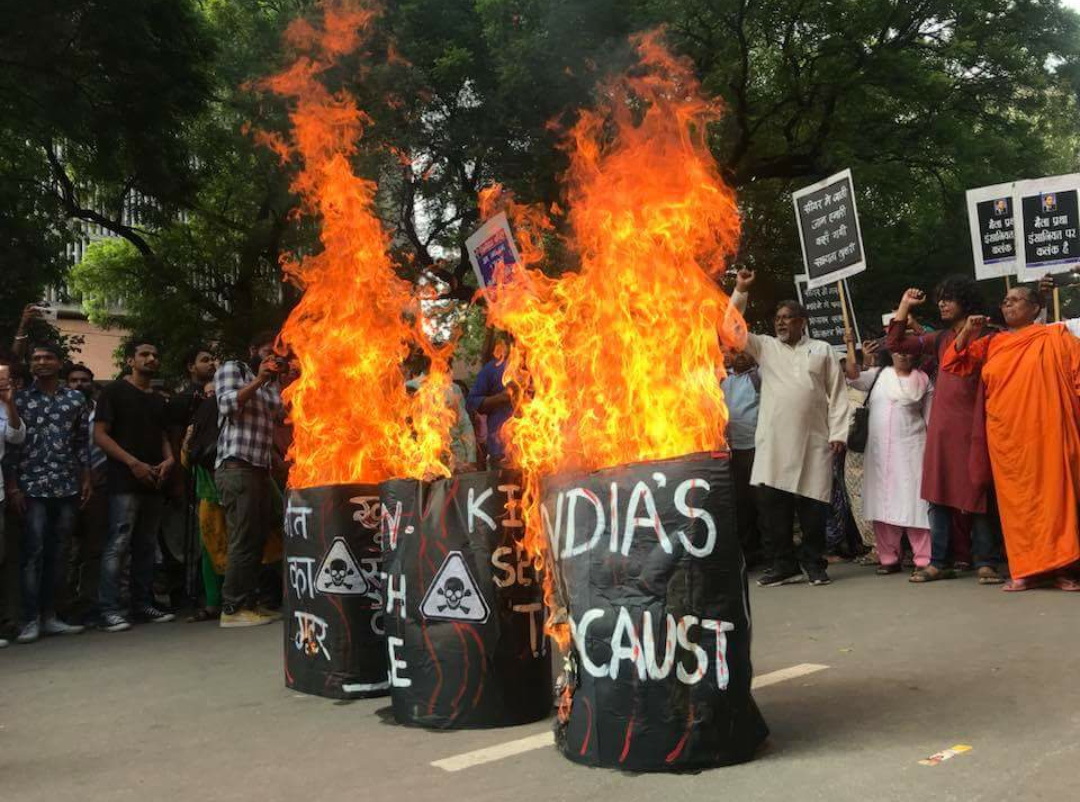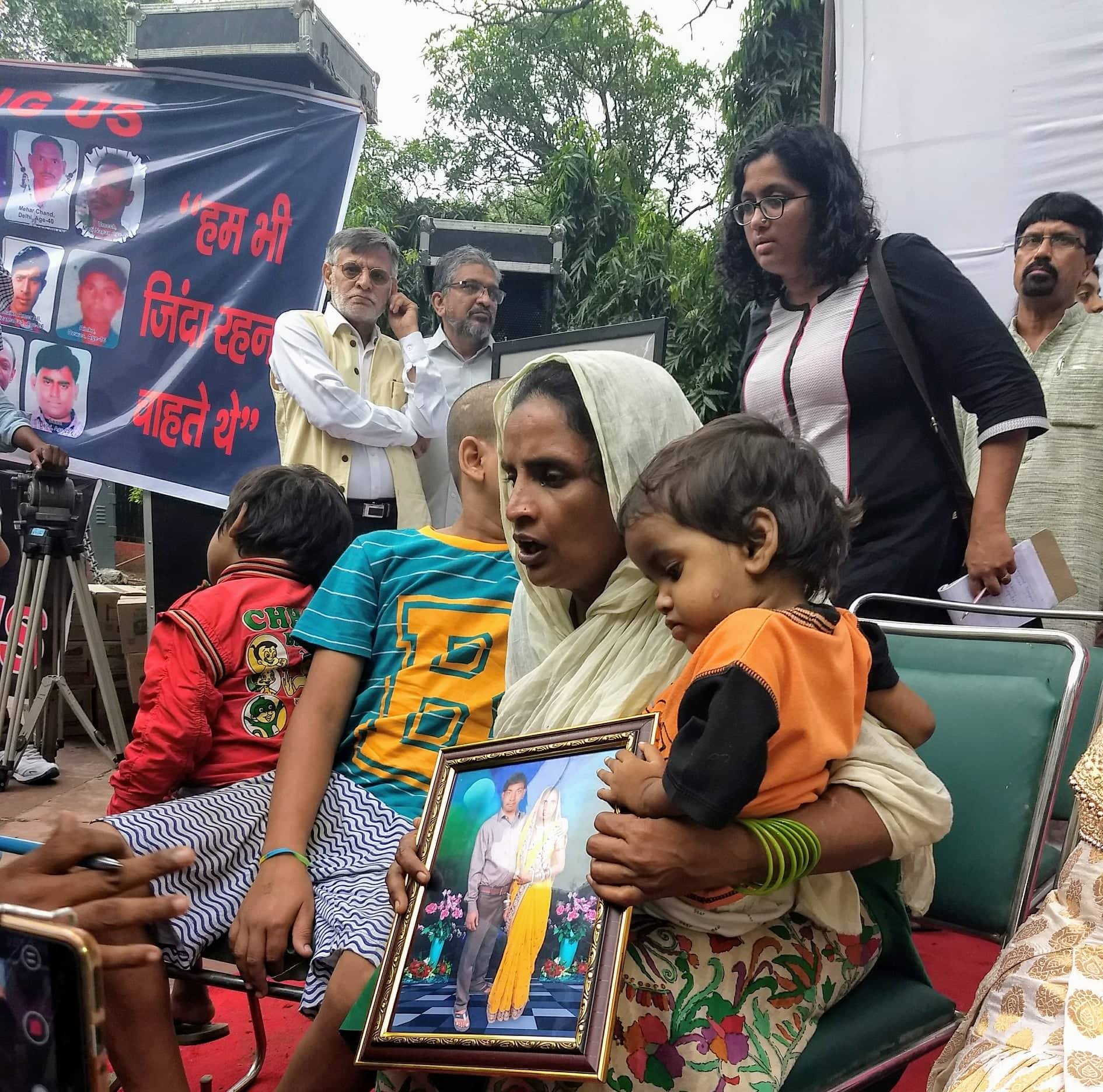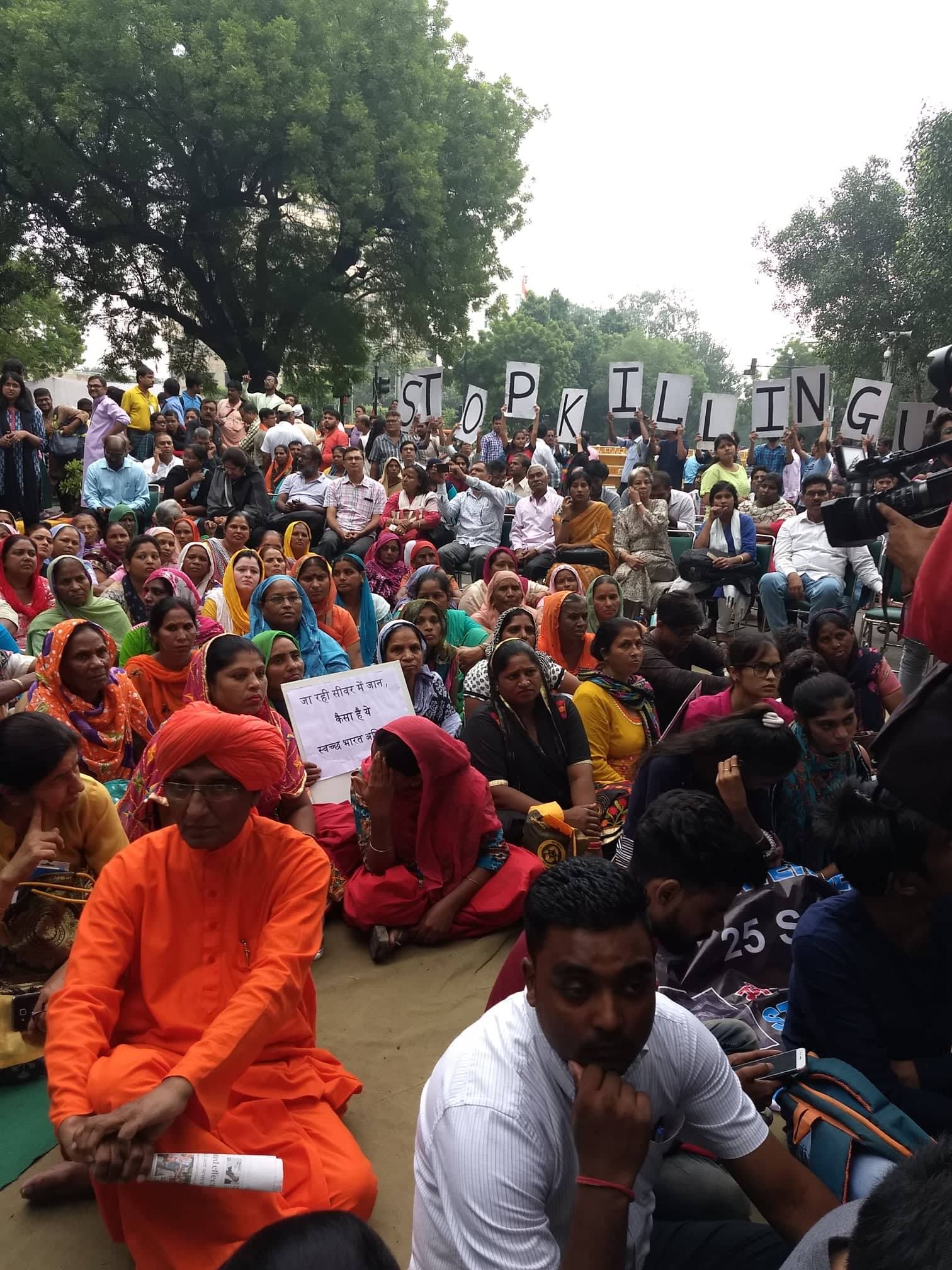The families, neighbours and friends of the safai karamcharis, who lost their lives in the sewers, took to the streets to make their voices heard today in Delhi. The protest was organised under the banner of the Safai Karamchari Andolan (SKA), and was supported by the CPI(M) and affiliated parties.
Rani sits on the stage with her three children, tears in her eyes, and a family portrait in her hands. She says, “He was pressurised by the contractors; he couldn’t refuse this profession, and now it took his life.” Rani is the wife of one of the several safai karamcharis who lost their lives by inhaling the toxic gases in the manhole. She questions, “I just want to know who will educate my children; who will provide for them?”
“The sewer took his life.”
Sitting right beside her was Angad. His brother Vishal – a young 20-year-old who wanted to step out to play cricket on a Sunday – had to go down the drain instead to meet his contractor’s demands. Angad said, “There was no safety gear. He put his life at risk to provide for us. He was younger than me, but he wanted me to study, while he took care of the finances.”
These similar stories could be heard from the families of the karamcharis who had travelled great distances to attend the protests, and to make their voices heard. They had come from Rajasthan, Punjab and Haryana. The placards they held read: “Stop killing us.”
Charna and Neeta from Haryana, while discussing the situation on the ground, explained, “We have been in the profession for 30 years, I cannot do this anymore.” “They added, “Just because we are poor, there seems to be no escape from this for us and our families. Even if we tried, the vicious circle of caste brings us back. This is the story of not just the people who died, but of the people like us who have suffered generation after generation.”
Bezwada Wilson, the convener of SKA targeted PM Modi during his emotional address. He said, “Look into the eyes of the young children and tell them where their fathers are?
The prime minister picked up the broom in Varanasi, and spent crores on his publicity for the Swachh Bharat campaign, but can he give answers to these people today?”
Solidarity for the workers poured in from across quarters. “Sewer deaths are murders,” said CPI(M) politburo member Brinda Karat, who led the protest. “There is a law against manual scavenging. However, it is not being implemented. Machines are supposed to be used for cleaning drains, but they are not being used. In such situations, people end up calling workers when drains clog,” said Karat.
Several people, under the banner of the CPI(M) and affiliated parties, marched to the Delhi Secretariat on Monday, protesting against the recent deaths of workers while cleaning sewers.
The delegation led by Karat also submitted a memorandum to the state government, demanding provision of sewer-cleaning machines, rehabilitation of workers, strict enforcement of the ban on manual scavenging, ₹ 25 lakh compensation to the family of those killed and a curb on privatisation of sanitation work.
Speaking to Newsclick, Kavita Krishnan, activist and politburo member of the CPI(M), added, “There is no other country in the world where you need people to go down the drain, and it is imposed on only one strata of the population. Why does this then happen in India? It is because of the caste system, and that cannot be overlooked.”
Journalist P. Sainath, author and activist Arundhati Roy, lawyer Vrinda Grover also expressed solidarity with the struggle.
The Safai Karamchari Andolan has been campaigning throughout the week to raise awareness about the brazen flouting of norms and stigma associated with the work of the safai karamcharis. The protests today culminated in the common folk questioning the vision for the future. One of the protesters said, “We want to send people to the moon and make bullet trains while our people choke to death in our drains, is this the development we aspire for?”
The deaths of sanitation workers have been garnering attention recently, as the nation witnessed more than 11 deaths in the last one week across the country. Despite the provision of a crackdown on employment of people as manual scavengers, the practice is on the rise and increasingly becoming dangerous for workers.
The agitated families burnt down the effigies of manholes in a symbolic way to express their demand – to end the practice of manual scavenging. The families are also demanding answers from the government and provision of rightful compensation and alternative employment.







